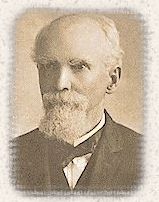
He will sit like a refiner of silver, burning away the dross.
Mal. 3:3
My good friend and fellow parishioner of Lamb of God Church, Jay Ferguson, wrote this prayer as a meditation for this year’s Advent season. Jay’s prayer puts into words the cry of our hearts: “Lord, deal with us. Cleanse us from sin, purify our consciences, renew our spirits. We want to be prepared for Jesus’ second coming and ready to worship and praise the Lord for his first coming.”
Father, in Jesus’ name, burn away every dream, desire, attitude, thought, feeling, word and action that is not a result of Your Spirit reigning in my life.
Burn away everything that is more important to me than my revelation of You and my relationship with You.
Burn away everything that hinders me from loving You with all my heart and loving my neighbors as I love myself.
Burn away everything that hinders me from hearing and obeying Your voice.
Burn away everything I believe about who You are and what You are like that is not the Truth.
Burn away everything in my heart and mind that causes me to desire to harm or destroy those who desire or act to harm or destroy me.
Burn away the lust of my eyes, the lust of my flesh and the pride in my life.
Burn away everything that causes me to desire to own or possess anything that is not rightfully mine.
Burn away everything that causes me to desire to lie or exaggerate to get what I want or impress or harm others.
Father, in Jesus’ name, I ask that I will be deeply intimate with You, filled with your Holy Spirit, free of pride, lust and fear, loving, patient, kind, tender- hearted, forgiving, joyful, thankful, grateful, humble, considerate, healthy, successful, prosperous and very generous.
Dr. James H. Ferguson







